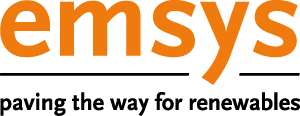energy & meteo systems successfully completes project contracted by GIZ
Simulation tool encounters rising popularity among rooftop solar installations in South Africa
A newly developed simulation tool is to aid the South African energy provider Eskom in grid planing as well as in meeting the demands of future power production. In the process, the company will address the massive development of rooftop solar installations in South Africa. Since 2013, energy & meteo systems has provided consulting to the national electricity provider Eskom in the optimal integration of fluctuating renewable energies from wind and sun for electricity grids and markets. The framework is set out by the South African-German Energy Progam (SAGEN), initiated by the German Corporation for International Cooperation GmbH (GIZ) in 2011 towards strengthening South African-German cooperation.
In the beginning of 2018, one of several subprojects was successfully completed. In this subproject, energy & meteo systems worked together with Eskom to assess the effects of decentralized rooftop photovoltaic installations on electricity grids and power-providing systems. Here, an internal data bank with collected data from known rooftop solar installations was created in cooperation with GIZ. Using this information and with historical solar radiation data, the project partners calculated how much solar energy was produced in over the last few years, how much was used by household consumers and businesses on their own and how much was supplied to the public electricity grid. This allowed for the very first overview of the development of decentralized rooftop solar installations in South Africa, as up to then there were no reporting obligations for these types of installations in South African communities.
On the basis of these calculations, a simulation tool was developed where the future expansion of rooftop solar installations in South Africa can be simulated with particular input parameters. This information can then be used by Eskom in grid planning as well as in the estimation of the reduced demand for conventional electricity in upstream grids. The subproject thus contributed to a better understanding of the usage of renewable energy in South Africa and is a valuable basis for further cooperation.
Information about the program

